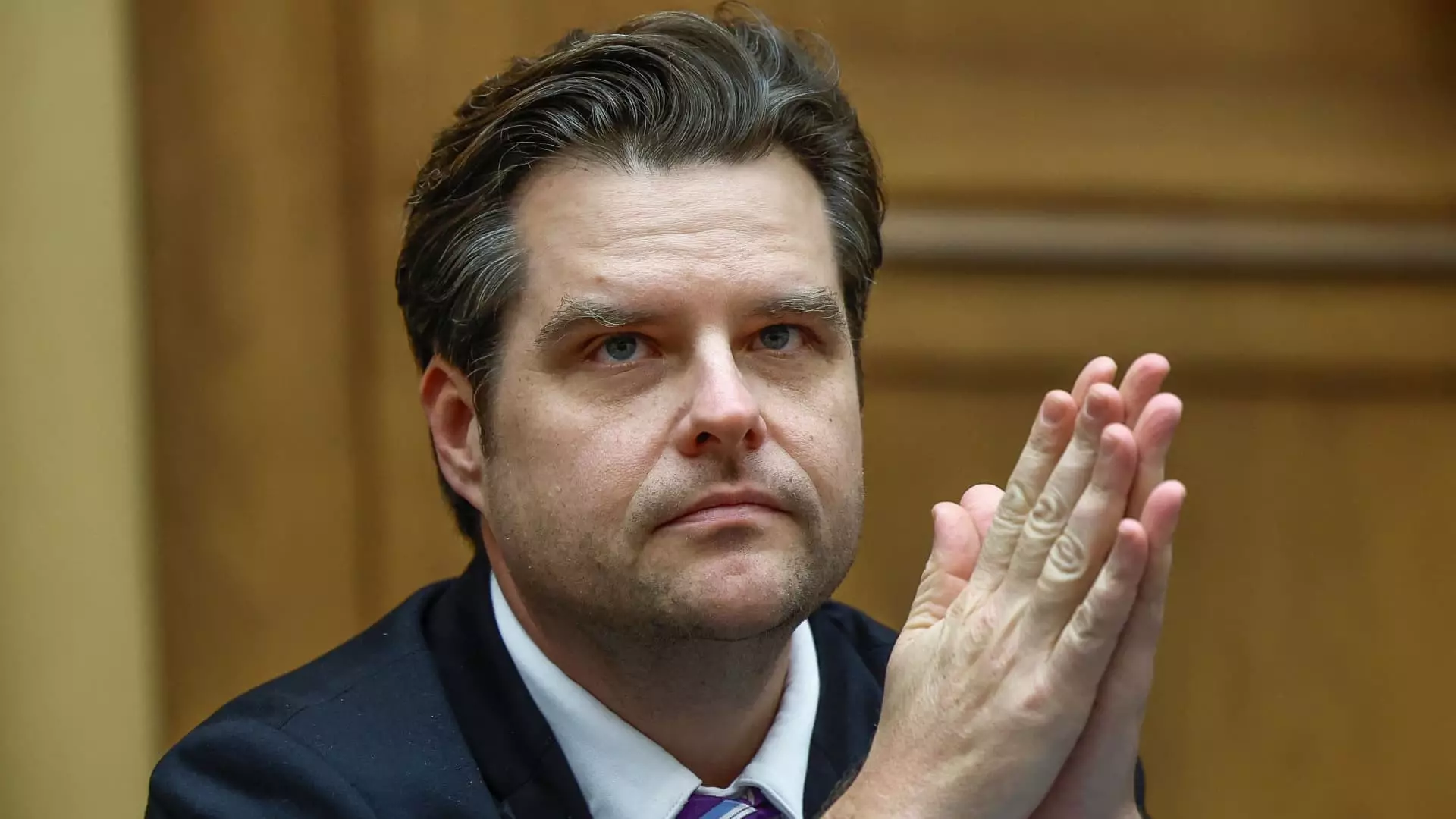The recent conclusions drawn by the House Ethics Committee provide a stark look into the controversial actions of former Republican Representative Matt Gaetz. The committee’s extensive investigation has unveiled significant evidence regarding allegations of misconduct during Gaetz’s term in Congress. This article takes an analytical perspective on the findings, exploring the implications they hold for Gaetz, the Republican Party, and broader ethical standards in public service.
The ethics investigation revealed troubling details about Gaetz’s conduct, indicating that he engaged in sexual relationships with underage girls, specifically highlighting an incident involving a 17-year-old girl in 2017. The report documents Gaetz’s involvement in illegal drug use and payment for sexual services while serving as a congressman. The extent of the committee’s findings paints a picture of a lawmaker whose behavior consistently fell below the expected standards of conduct for an elected official.
Moreover, the committee indicated that Gaetz accepted gifts that far exceeded permissible limits, including a lavish trip to the Bahamas in 2018. Such actions not only breach House Rules but also raise critical questions about the ethical obligations of public servants who occupy positions of trust. The report clearly articulates that Gaetz’s behavior reflects dishonor on the House and undermines the integrity of the legislative body.
While the committee established that Gaetz had indeed violated several ethical standards, the conclusions regarding potential federal sex trafficking charges were notably nuanced. They found that he “did cause the transportation of women across state lines for purposes of commercial sex,” yet they did not find sufficient evidence of force or coercion being involved. This distinction is crucial because it demonstrates the complexities of proving sex trafficking, especially given the legal definitions and requirements involved.
The committee’s determination that Gaetz engaged in statutory rape, however, casts a long shadow over his public character. Despite Gaetz’s insistence that he did not engage in illegal acts, the evidence unequivocally counters his claims. The findings not only challenge his narrative but could potentially have lasting legal repercussions. His alleged interactions with “Victim A” are particularly damning, especially considering that she was just days away from high school graduation at the time of their encounters.
In the face of these serious allegations, Gaetz has vigorously maintained his innocence. His attempts to discredit the House Ethics Committee’s findings reveal a contentious mindset typical of political figures under scrutiny. By labeling the committee’s report as a targeted attack, he seeks to shift the narrative from accountability to victimization, suggesting that his adversaries are wielding allegations as political weapons.
Gaetz’s assertions lack tangible support given the breadth of the evidence collected during the investigation. He attempted to block the release of the report, an action that could be interpreted as evasive rather than proactive. This behavior indicates a potential unwillingness to confront the facts head-on, instead choosing to portray himself as a subject of unfair scrutiny.
The implications of Gaetz’s findings extend beyond his individual actions. They pose significant challenges for the Republican Party, which is tasked with addressing emerging ethical dilemmas within its ranks. Gaetz’s close ties to prominent figures like former President Donald Trump further complicate the situation, as his nomination for attorney general was met with considerable skepticism due to the ongoing investigations into his behavior.
The controversy surrounding Gaetz is indicative of deeper issues within political structures, raising questions about how elected officials are held accountable for their actions. The failure to effectively sanction members who exhibit such behavior may instill a culture of impunity within the political arena, potentially dissuading public trust in the institutions designed to represent and serve citizens.
The House Ethics Committee has laid bare a troubling narrative concerning Matt Gaetz’s actions and the ethical standards expected of public officials. As lawmakers sift through these revelations, it is imperative that institutional reforms are considered to prevent similar incidents. The integrity of public office hinges on accountability, transparency, and a commitment to ethical governance. Only through rigorous oversight can the public regain confidence in its elected representatives and ensure that those in power adhere to the principles of justice and respect for the law.


Leave a Reply